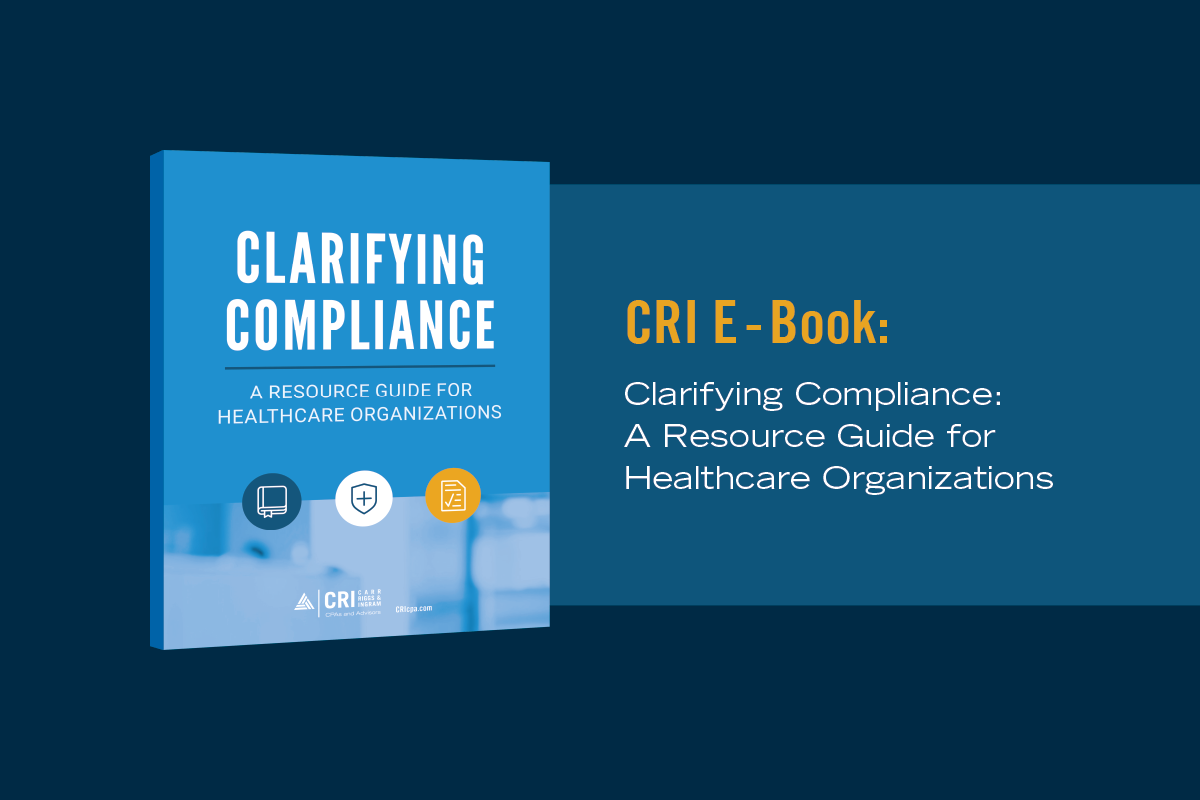Top 5 Accounting Questions to Ask Your CPA
Feb 16, 2022
Managing finances isn’t what attracted you to business ownership. In fact, for many of our small business clients, accounting is the most difficult aspect of the job. Fortunately, understanding small business accounting is within anyone’s reach.
Here are five of the most common accounting questions we get from small business owners.
Can I Mix Business and Personal Expenses?
Well … you can mix business and personal expenses, but that doesn’t mean you should.
If you are an unincorporated sole proprietor, the IRS views you and your business as one and the same, so paying for business and personal expenses from the same bank account isn’t a red flag. However, you should never report personal expenses on your business’s tax schedule; only legitimate business expenses are deductible. For liability purposes, it is always better to keep your personal expenses and business expenses separated.
If you’re an incorporated entity, intermingling business with personal expenses is a bit riskier. Because S corporations are legal entities independent from you as an individual taxpayer, there may be tax consequences if you commandeer business funds for personal use. A great way to ensure your funds are kept separate is to have different bank accounts and credit cards for your business. Plus, this makes tracking the business expenses easier.
If you do accidentally use your business credit card to purchase a personal item, don’t stress; there are solutions. First, keep your receipts. Make sure your receipts can point to what portion of the cost was for business use and what is considered a personal expense. Second, tell your CPA. Until you reimburse the business, your accountant may need to record a shareholder loan on the books (and charge you appropriate interest).
Alternatively, if your business is a partnership, you may be able to record the personal expense as a distribution. Because both options will affect your financial statements and may impact your tax return, it’s easiest to keep personal expenses separate from your business expenses whenever possible.
Are All Business Expenses Tax Deductible?
No, business expenses are not always deductible on your tax return. The IRS disallows deductions for some business expenses, including:
- Political contributions
- Penalties
- Entertainment costs (and some meal costs)
- Business gifts to clients in excess of $25 per person
Similarly, not all tax deductions correlate perfectly to a business expense. Depreciation is the most common example. The depreciation deductions on your tax return almost always differ from the depreciation expense reported on your financial statements. For example, the IRS allows you to deduct 100% of the cost of an asset in the first year using bonus depreciation, but for financial reporting purposes, you must spread the cost of that asset out over many years.
These differences — between what is recorded on the books and what’s reported on your tax return — are called “book-tax differences.” Your CPA will discuss this concept with you at tax time.
How Long Should I Retain Documents?
The general rule of thumb is to keep documents for at least three years. The federal statute of limitations is three years after the date you file your return or after the original due date, whichever is later. However, it’s smart to keep some records longer. For example, the American Rescue Plan Act extended the assessment period from three years to five years for returns that claim the employee retention credit (ERC). If you claimed the ERC, you should keep employment records and credit calculations for at least five years after the date you filed your return.
Because document retention is so important, we created a helpful cheat sheet for whenever you have questions.
Do I Need Both a Controller and a CFO?
In many businesses, the CFO acts as the controller. But these positions actually perform two very different functions.
The controller oversees the accounting process.
The controller should be intimately familiar with the day-to-day accounting needs of the business: payroll, accounts receivable, accounts payable, inventory counts, cash reserves, etc. Also, the controller often enforces internal controls, builds both internal and external reports, and meets all compliance needs (like working with auditors, drafting grant requests, and building annual reports).
The CFO drives big-picture financial decisions for the business.
The CFO should work with the controller and other members of upper-level management to build strategic financial plans for the business. This typically includes establishing long-term budgets, determining and tracking key performance initiatives, and answering shareholder questions. But their role is often more complex. For example, a CFO would be the primary point person to guide the business through an initial public offering or to assess the feasibility of a merger or acquisition.
Businesses that cannot afford both a controller and a CFO may want to consider the advantages of outsourcing.
What’s the Best Financing Option for My Business?
Very few businesses get off the ground without borrowing a bit of money. Fortunately, there are a few ways small businesses can build their cash reserves.
Line of credit
Establishing a line of credit with your bank should be simple and straightforward. Lines of credit are low-risk options for times when you need instant access to cash and will be able to pay it off quickly.
Credit card
Although credit cards are an option, they should only be used as a last resort. Ideally, you should be able to pay your credit cards off at the end of each month.
SBA loan
The Small Business Administration (SBA) doesn’t lend money directly to small businesses, but they help guarantee small business loans made by commercial lenders. SBA loans typically offer competitive interest rates, low down payments, and favorable payment terms compared to commercial loans.
Commercial bank loan
Commercial bank loans are great options for businesses that are in good standing with their bank. Commercial lenders can typically approve a loan faster than the SBA will, but most will only loan to a business with collateral and an extensive credit history.
Crowdfunding
Crowdfunding has become more popular over the last decade and is a great option for businesses with niche audiences and a loyal following. Crowdfunding can be used for anything, but most businesses pursue crowdfunding when they have a specific goal, like opening a new location or offering a new product.
Equity
Instead of taking out debt or asking for donations, you can raise capital by selling off part of your business. Investors, venture capitalists, individuals, or even other businesses can purchase shares of stock in your company, giving you instant access to cash. Just keep in mind that when you sell equity, you’re diluting your own ownership in the company.
We know you have more questions, especially as you finalize year-end numbers and think about the 2022 tax season. Contact CRI today to discuss your pressing tax and accounting questions.





















































































































































































































































































































































































































































































































